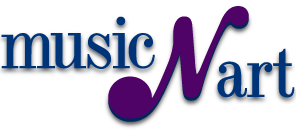
The piano is unquestionably the most popular musical instrument in the world. It is an instrument that can cover all the melodic range of a big symphonic orchestra since it has a big range of tonalities (usually 88 keys). The piano is said to be a clavier (keyboard instrument) but studies have shown that it is actually a stringed one since sound is produced through its strings. As soon as you get the chance look inside a piano and you will see that for each key, black or white, there is a padded hammer that strikes the metal strings, producing the sound or note. The piano had various forms in the past, such as the clavichord and the harpsichord, etc., before Bartolomeo di Francesco Cristofori (1655-1731) gave it its final form in the early 18th century. He was the one who introduced the little hammers in order to add variety of sound ‘color’ by pressing the keys loudly or softly. Thus, the power used and the way one touches the keys play a significant role on the sound produced.
There are several types of pianos; the grand ones, which are the big, horizontal pianos (that also vary in size), but also the upright ones which are vertical. A person will most probably get confused when trying to buy a piano because of the numerous piano manufacturers. The most important thing to remember and consider in those cases is sound. Sound can be generated by touching the keys and thus one has to try it out before buying a piano. As the ‘king’ of musical instruments, the piano is used in all music genres and it also constitutes a musician’s main tool when composing a musical piece.
One may start learning the piano at the age of about 6 years old, even though some start at 5. This varies according to the maturity and musical perception a child has developed until that moment. As with almost all musical instruments, the lessons start by learning the notes, values and short easy pieces. Learning to play the piano never ends simply because music is never ending. Even the greatest pianists are challenged when trying to play pieces they have never played before!
The piano is considered to be a relatively difficult instrument to learn. However, students will be able to play short musical pieces by the end of the first year and their progress solely depends on them. The personal interest, the study hours and their love for the piano are elements that if combined together can turn someone from a beginner piano player to a good pianist in a very short time! The students’ growth when learning the piano may be combined with taking jazz or pop piano lessons, which differ from the classical piano ones.
Piano lessons, as all musical instrument lessons, are conducted on a private basis. That is, the lessons are conducted with the teacher and one student only. This enables the teacher to give all his/her attention to the student for the best possible results. The duration of the lessons varies according to the level of each student. Since the lessons are private there is flexibility in terms of the day and time a lesson can be arranged. The exact days and hours are jointly agreed upon by the student and the teacher before the beginning of the academic year. As time passes by and as the student progresses, additional hours might be added in a classroom with students of other musical instruments in order to create small orchestras, ultimately aiming to familiarize themselves and coexist with other musical instruments.
The school offers recognized examinations for all of its departments. The majority of the examinations are from foreign universities and schools and especially from the United Kingdom and the Czech Republic. The piano examinations offered by the school are from the ABRSM (Royal School of Music), Greek conservatories, the Trinity College and the Conservatory of the Czech Republic. However, the jazz and pop examinations are only offered by Trinity College. All diplomas are recognized by the Ministry of Education and Culture as well as by all universities abroad. Therefore, regardless of what musical instrument one plays and the levels completed, the school diplomas can be used as additional qualifications for admission in overseas universities!
